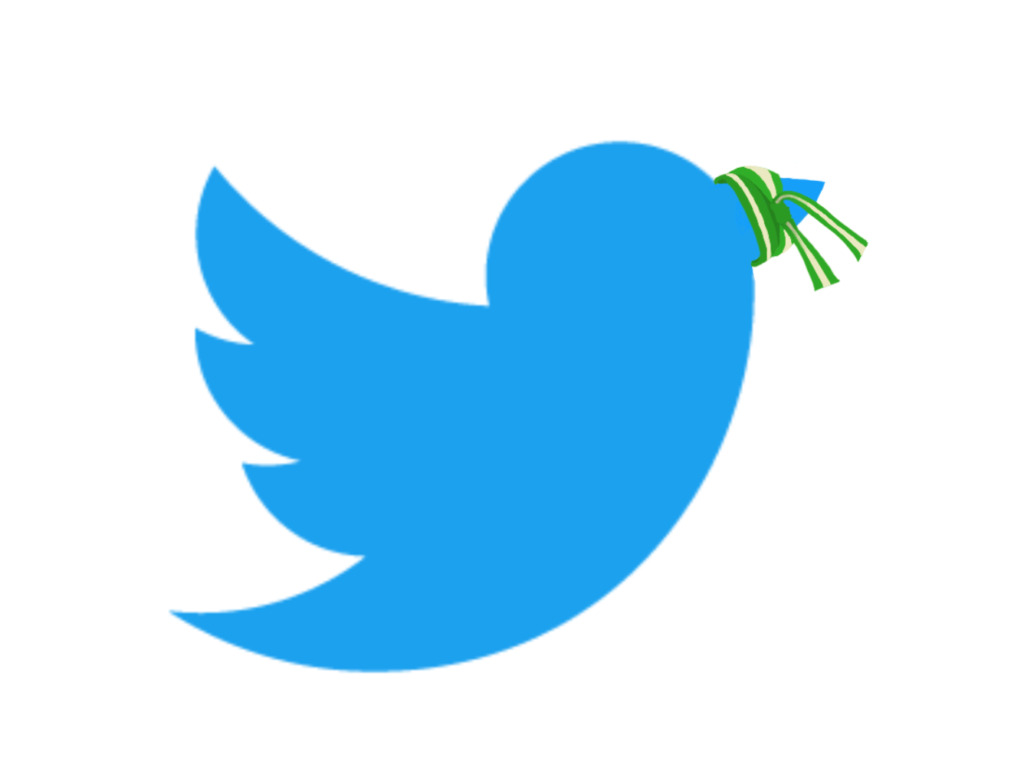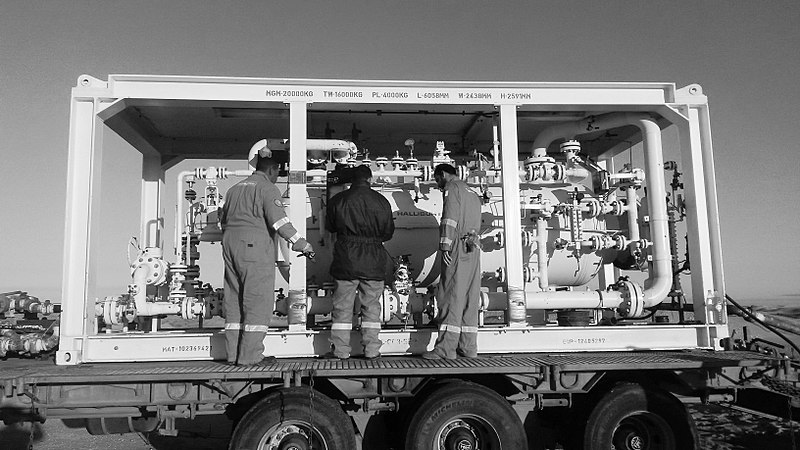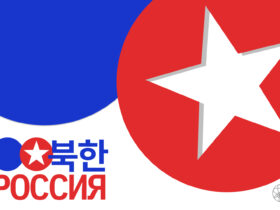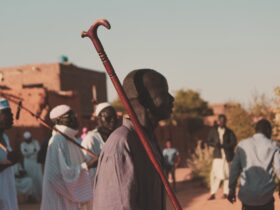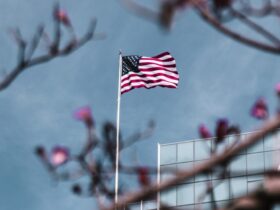LOS ANGELES — As social media’s use and influence continues to expand exponentially into all aspects of modern-day life, world leaders are grappling with how to and if they should regulate these platforms. Some countries have taken more extreme approaches. On June 4, 2021, Nigerian President Muhammadu Buhari announced in a shocking statement that Twitter would be banned indefinitely with legal consequences in place for violations.
Buhari’s spokespeople attributed the ban to Twitter being a platform that promoted real-life violence. Yet days before the ban, Twitter removed a tweet from Buhari threatening to treat dissidents in “the language they understand” for violating its abusive behavior policy. Many theorize this was the final straw for the Nigerian government, which had previously toyed with the idea of regulating social media.
In 2020, protests against the Special Anti-Robbery Squad, SARS, exploded following years of claims of police brutality, violence and corruption. The protests were largely fueled and organized through Twitter under the #EndSARS hashtag, which the platform heavily promoted, a move that presumably drew Buhari’s anger.
The ultimate decision to ban Twitter was met with mixed reactions. A number of world leaders and human rights groups condemned the act. The United States, EU, Ireland, Britain and Canada issued a joint letter reasoning that “banning systems of expression is not the answer,” especially during a time when “Nigeria [precisely]needs to foster inclusive dialogue and expression of opinions.”
The Socio-Economic Rights and Accountability Project (SERAP), a Nigerian non-profit NGO, decreed the presidential move “illegal and unconstitutional” and threatened legal action. Small businesses in Nigeria suffered a massive blow, and Twitter’s 39 million Nigerian users spoke out heavily against the ban.
There remained, however, a prominent supporter of Buhari’s decision: former U.S. President Donald J. Trump. Trump has experienced struggles with Twitter of his own, being permanently banned from the app following his incitement, in part on Twitter, of the January 6 Capitol riots. While Trump elected to sue Twitter as a private citizen, he still personally congratulated Buhari for his decision. Trump even claimed that he himself should have done the same while in office and that more countries should consider banning Twitter and Facebook as they do not allow for “free and open speech.”
Across Africa, this tightening of accessibility to such platforms is increasingly becoming a reality. Countries like Uganda and Ethiopia have engaged in social media shut-downs prior to presidential elections. Globally, nations like India, Thailand and Vietnam consistently delete mass amounts of information from these forums, justifying these deletions as an attack on “fake news.”
Twitter, for its part, issued a statement following the Nigerian ban stating that “access to the free and #OpenInternet is an essential human right in modern society.” Many view this statement as truth, with the aforementioned SERAP stating, “The suspension of Twitter in Nigeria is a blatant violation of Nigerians’ rights to freedom of expression and access to information.” Twitter and its fellow virtual platforms are undeniably intrinsic to communication, awareness, and activism in our modern world.
In Nigeria, along with the #EndSARS hashtag, Twitter was essential in raising awareness and action following Boko Haram’s 2015 kidnapping of hundreds of schoolgirls with the hashtag #BringBackOurGirls. This massive potential for activism has been witnessed around the world, from the Black Lives Matter movement to the Arab Spring uprisings.
Amid the COVID-19 pandemic, social media has been imperative to educating the public on symptoms and possible exposures. For many, it had allowed them to maintain a sense of human connection and wellness during a highly stressful and isolated period.
Across the world, 97% of Fortune 500 companies rely on social media, and research by Fundera has found that 96% of small businesses have social media as part of their marketing strategy, with 74% of consumers making decisions guided by the platforms. More than 90% of companies use mediums like LinkedIn to fill job openings. More than half of the world uses social media and relies on it to access news and information.
Social media has clearly burrowed its way deep into the etches of modern society. Some contend it must be left as an open-speech forum to avoid the possibility of corruption and manipulation.
Yet critics of mass media liberalization argue that the consequences of not regulating monoliths like Twitter and Facebook have unprecedented ramifications. Experts have pinned these tech giants as a major source of polarization and violence worldwide, as is illustrated by the January 6 riots. The United Nations found that Facebook played a “defining role” in the ongoing genocide of the Rohingya in Myanmar. Security experts also point to deadly patterns in the use of social media combined with the rise in homegrown and worldwide terrorism. Russia utilized the platforms to essentially hack the 2016 U.S. presidential elections by stoking social divisions with controversial content and heavily promoting pro-Trump content.
While social media was highly beneficial for establishing digital connections during COVID, it was also the source of an abundance of harmful misinformation, likely influencing the millions who willingly remain unvaccinated. These negative effects persist despite the fact that all major platforms heavily self-regulate, relying on AI and human moderators to take down hundreds of millions of posts containing everything from hate speech to child pornography to harmful misinformation.
Africa is a particularly contested problem region. Social media regulation as applied by corrupt govenrments has been seen to lead to a legitimization of disinformation and censorship of public discourse. Prominent examples other than Nigeria include Uganda, Ethiopia, Chad, Kenya and Malawi. All these countries have vaguely worded social media policies which allow for governments to crack down and censor public dissent under the guise of limiting “disinformation.” In Chad, for example, the regulation of hate speech is oft used as an excuse to halt internet access. African governments exploit the unestablsihed boundaries of social media regulation to their benefit, largely without accountability.
The issue of government regulation of the digital sphere is an ever-evolving challenge yet to be solved. It raises a plethora of concerns about the future of social media. Will countries elect to tighten restrictions on what can be shared and viewed, or conversely, demand there be no restrictions at all? Should governments be able to manipulate the language of regulation to their interests? Perhaps the most prominent question to ask is if regulation is even viable anymore.
In Nigeria, the day after the ban, the country’s second most searched term was “VPN app,” with a more than 100% spike in searches. VPN trended among Nigerian social media users hours after the announcement. Nigerians rushed to download these VPNs, or virtual private networks, which would allow them to evade regulation and restriction by falsely changing their device’s location to another country. Furthermore, there remained countless other apps at Nigerians’ fingertips to use in a highly similar format to Twitter.
Buhari’s ban of Twitter was ultimately a fruitless effort to limit the power and scope of social media. Loopholes in the system, such as VPNs, and a plethora of alternate options, like Facebook or Instagram, made such a ban ineffective. Furthermore, the policy cost the country $709 million dollars in just 118 days, primarily due to the failure of businesses that rely on the platform.
As such, Nigeria reversed course and lifted the Twitter ban only four months after its instatement. Statements made by Buhari’s spokespeople demand the app presently be used only for “business and positive engagements” in order to “respect Nigeria’s sovereignty, cultural values, and promote online safety.” For countries across Africa and the world, the conclusive failure of the ban is both a warning and a lesson.
Social media has grown to previously unimaginable heights. Its influence shapes the world’s political, cultural and societal discourse. Social media is no longer an accessory, but a necessity for the average citizen in a modern society. The most pressing issue that remains is not how to regulate social media, but how to reckon with its control over our globalized world.


